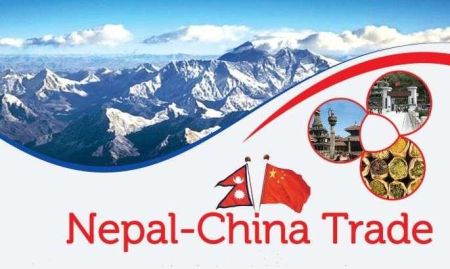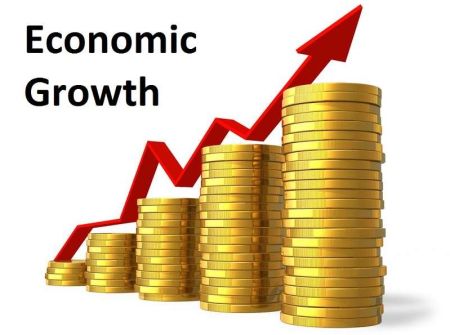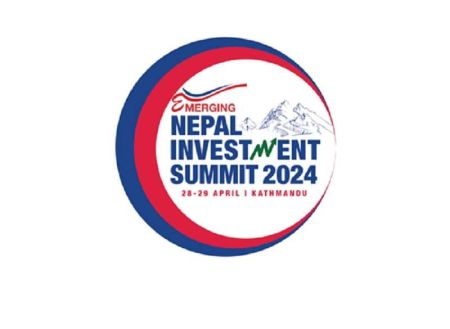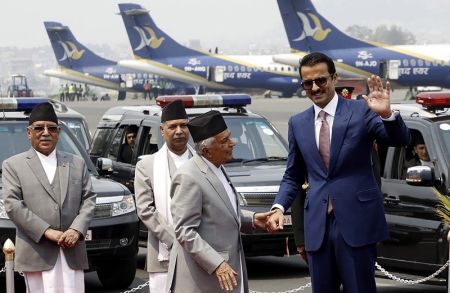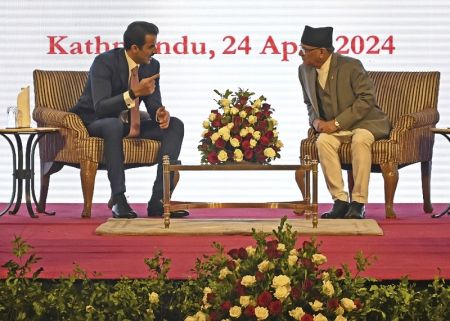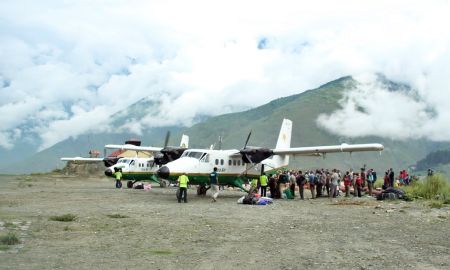Interview: September 2011 - There Is Much To Gain And Look Forward To
 Joseph Silvanus joined Standard Chartered Bank Nepal Limited as its new Chief Executive Officer in July 2011. A student of Economics at St Stephen's College, Delhi University, followed by a management degree from Mumbai University, he had a brief stint with established FMCG names such as Voltas Ltd and Pepsi Foods Pvt Ltd before moving over to the banking sector. A banker for over 18 years, Silvanus has worked with ANZ Grindlays Bank followed by Standard Chartered Bank across various geographies. He has vast exposure to consumer banking operations having managed branches, marketing operations, business analytics, services and service quality and project management. In his most recent role as Regional Head of Development Organisations for South Asia, he played a pivotal leadership role in engaging multilateral/bilateral agencies and DFIs for directing specific programme-based support towards Asia. In an interview with Pinaki Roy of New Business Age, Silvanus shared his views on Standard Chartered Bank's phenomenal success over the years and his plans for Nepal operations. Excerpts:
Joseph Silvanus joined Standard Chartered Bank Nepal Limited as its new Chief Executive Officer in July 2011. A student of Economics at St Stephen's College, Delhi University, followed by a management degree from Mumbai University, he had a brief stint with established FMCG names such as Voltas Ltd and Pepsi Foods Pvt Ltd before moving over to the banking sector. A banker for over 18 years, Silvanus has worked with ANZ Grindlays Bank followed by Standard Chartered Bank across various geographies. He has vast exposure to consumer banking operations having managed branches, marketing operations, business analytics, services and service quality and project management. In his most recent role as Regional Head of Development Organisations for South Asia, he played a pivotal leadership role in engaging multilateral/bilateral agencies and DFIs for directing specific programme-based support towards Asia. In an interview with Pinaki Roy of New Business Age, Silvanus shared his views on Standard Chartered Bank's phenomenal success over the years and his plans for Nepal operations. Excerpts: You have just joined in. Do you have new plans in mind for Standard Chartered Bank's operations here in Nepal?
Nepal continues to be very important from a South Asian perspective of Standard Chartered Bank. It is now my turf to be able to grow the relative importance of Nepal in the overall scheme of things. Having consumer banking and wholesale banking as the two basic engines of growth for us does not mean that we will have quantum changes about the way we do our business in this part of the world.
We will continue to grow the engines albeit with some level of caution because of the underlying situation Nepal is experiencing right now. But I personally see a lot of advantages that can be derived even through this phase of Nepali economics. The changes that I will bring, perhaps, is to leverage the Group businesses, expertise and the best practices. I can be a catalyst for that and we have internally discussed as a team that we will have more of these engagements. The businesses will reap the benefits of these visits and conversations that I had with the rest of the Standard Chartered Group.
 This must be an encouraging year for Standard Chartered as it is one of the largest profit earning international banks despite the global economic crisis. What do you attribute this success to?
This must be an encouraging year for Standard Chartered as it is one of the largest profit earning international banks despite the global economic crisis. What do you attribute this success to? After receiving the Group results just over a couple of weeks ago, it convinced ourselves that we have done exceedingly well. I am absolutely delighted to see the results. We registered ninth consecutive record first half profit and double digits growth both for the top line (11 per cent) and profits (17 per cent). Everyone is delighted including the investors and shareholders and obviously, the businesses know what they are going to do for the rest of the year.
Looking closer home in Nepal, I think we have achieved much. It's been a tough year with issues of liquidity and governance coming through the financial network. There has also been some amount of uncertainty because of the global businesses impacting Nepal's economy. Nevertheless, I believe that both consumer banking and wholesale banking and the respective support functions have all got together to give value to local Nepali shareholders. There has been good EPS (Earnings per Share) and top line growth as well as effective cost management at a time when we really needed to look inward and reduce expenditures coming through unforeseen circumstances. We have done well as a bank in Nepal on all fronts and have continued to be strong both on capital and liquidity. Therefore, from a group as well as country's standpoint, there is much to gain and look forward to.
One of Standard Chartered's unique features is successful lending to SMEs. Do you plan to expand or review the lending policy?
SMEs have always been an engine of growth for the bank. Asia is typically a burgeoning economy for entrepreneurs and Nepal is no exception. If you look around, you can see how entrepreneurs are converting opportunities on a daily basis and the way banks are supporting them. For us, SME is a perfect space between the lower end of consumer banking and the upper end of corporate banking. The segment is very well placed. We have appropriate products that take care of all their requirements such as Working Capital and Term lending, Trade & Guarantee lines and Margin based lending.
However, we must realise that while SMEs are the global engine of growth for the group, we have to tread with caution when it comes to Nepal. We have to be able to create equitable mortgages as most of our SME lending is based on some form of fixed collateral. Therefore, we have to play as per the rules of the game. We are trying to bring in a few products that are used in the group in the area of margin based lending. It is an important engine of growth not only from the bank's perspective but from a social point of view as well. We are creating a lot of headroom for growth, engagement and employment opportunities. These will have plenty of forward linkages because the entrepreneurs will be able to subsist. Access to finance is a key issue for SME business the world over. We see ourselves as a force that could help meet that latent need.
The Nepal Rastra Bank (NRB) has brought several new measures in its monetary policy. How have you viewed this policy?
Policies are well meant so I have given them a balcony view. I clearly think that NRB has tried its level best to meet some of the needs of the current economic state. Reducing CRR (Cash Reserve Ratio), for example, is good as it injects liquidity but it drives up some amount of inflationary tendencies. You have to understand that every action has an equal and opposite reaction. Increasing exposure to the deprived sector is certainly a good measure, especially when we know that farmers and the micro credit side of things require some amount of stability. However, I would like to see well-run, professionally-managed and well-governed micro credit institutions that can use this extra amount of liquidity coming their way. This would help create productive assets in the hands of the farmers so that the entire ethos around farming communities can gain sustainably from micro credit.
The bottom-line is that while the policies are well meant, they need to be managed and supervised to the end. There are other areas where it has tried to adjust such as the Basel II issues as there has to be better accounting procedures and stress management techniques. The banks have to be prepared for event based risks. Therefore, on the whole, there is a good effort on the central bank's part as far as the monetary policy is concerned. But if it could be combined with great oversight by the concerned stakeholders, you have a winning strategy for the country. I am an optimist as far as Nepal is concerned. It's but natural that when things stack up, people can feel deprived and adopt a pessimistic approach. The people of Nepal are very resilient and it's time their patience got paid back in terms of good governance. The central bank needs to have a good embedded structure on which some of these policies can be grown upon. Policy interventions are great when they get implemented in the right fashion.
Standard Chartered in Nepal has remained shy on investing in long-term projects such as hydropower and road infrastructure. What, do you think, are the possible bottlenecks?
We clearly believe that Nepal has been imbued by god by several natural resources. Hydropower is one area where the country can really subsist and actually become a force for growth for the entire region. Underinvestment is due to several counts such as lack of transparency, clear policy directives and long term stability. The FDI which comes in this country is restricted to short-term investments and areas of quick generation of goods and services. However, long term investment in infrastructure, broadly speaking, has been lacking, for sure. We have to create easier barriers to entry, longer trade protocols and cut down on double taxation that exists, perhaps, within certain geographies. We also have to allow the investors vision for at least a longer period of time.
Bank and multi-lateral finance is always there. We already have done work in the past on hydro electricity in Nepal and are looking at a good pipeline of similar products. As a bank and a brand name, we are `Here for good which means we are here for the medium and the long term. Our commitment to Nepal is unquestionable and therefore, if we have to support the growth of infrastructure, we will certainly exercise our might. The bank is strongly behind these sectors. Hydro and roads etc take time as these are huge projects which are to be governed by several other global rules. We are quite happy to consider them, provided the right investments come along.
You must have faced a lot of pressure to accept more deposits in recent times due to a large number of people withdrawing their money from small institutions. Has there been a substantive change in your deposit patterns owing to this development?
This is true not just for Nepal and this has been happening right through the period of turmoil and uncertainty. Whenever there is uncertainty in any market, there is flight to quality. People like to resort to safer havens in times of uncertainty. We are open to business in Nepal and if people so believe that in the interest of risk mitigation, they wish to move their hard earned money to a safer institution, we will not stand in their way. However, we will go through the normal protocol of good governance by looking at customer details etc and then we would bank for them. It's part of our day-to-day business, we are not in this business of just going and garnering liquidity from the market. But if it comes to us at the price point that we would like to take at, we would certainly accept it.
We understand there is serious homework being done on mergers and acquisitions of a number of banks in Nepal. How close are you on this front?
Well, it's public domain knowledge that even the Nepal Bankers Association has written to the central bank asking for tax incentives etc in the event of buying distressed assets or for mergers and acquisitions if there were. Our own view in this matter is very clear. In this part of the world, the economies are growing very productive and organically and there is a load of growth potential. Therefore, banks like ours would be more interested in looking at organic growth. On the other hand, acquisitions come at a cost. It has to do with people, culture, system integration etc and sometimes, it is difficult to get the math right. From a Nepali context, we are very happy right now with our organic engine of growth. We want to believe in primarily using the engine of origination rather than buying out an asset originated institution. We believe in our origination capabilities because we understand credit best in terms of the market that we are in and given the number of years that we are on the ground.
 How long do you think Nepal's interest rates would be as high as they are? Aren't high interest rates detrimental to the growth of industrial and manufacturing sectors?
How long do you think Nepal's interest rates would be as high as they are? Aren't high interest rates detrimental to the growth of industrial and manufacturing sectors? This has got to do with some amount of demand and supply economics, cost of capital etc. Nepal is an unrated economy and we have imputed some ratings to the economy given the existing economic and political risks the country is attached to. Today, if you are to benchmark your savings bond for five years at 10 per cent which is an indicative rate, we don't have too many instruments that are longer term which will give you an indication of what the cost of funds or doing business in Nepal is. While I don't have a very firm view on where the interest rates are going to be, I believe they will remain the way they are for a short to medium term. The rate today correctly implies the cost of doing business in this country, part of which is the cost of capital. It is heightened because along with the cost of capital, there is liquidity risk and so many other market and non-market operational credit risks which pour into increasing the total cost of the fund. I believe that this is here to stay for a while unless and until we have a systemic kind of revamping of risk. We have to have central bank and all its adjuncts come out and play a constructive role in rebuilding some of these elements of risk. We will then have cross-border and country risks and the overall risk of the cost of capital come down. It will then reflect in cheaper interest rates.
No entrepreneur or industry would like a high cost of credit as it mirrors heavily on their balance sheet. It reduces their strength to leverage the balance sheet and there are other cost elements too that are unique to Nepal such as the cost of staff and security, which, is not so large in other neighbouring countries. Therefore, it is to the extent of dampening entrepreneurial streak of modern day manufacturing. I believe that it's not a good story and there must be a different form of intervention where given the inherent risk of doing business in Nepal, the leverage allowed to such institutions should be higher. For example, if there is eight per cent leverage on a non-banking financial intermediary, it can be decided to give a higher leverage to such institutions. It is because resources are at a premium for such people and as long as the business model is good and the shareholders are willing to support the model, it should be allowed by law to higher leverage such institutions.
Being a reasonable global player, how do you think Nepal can benefit from the ever growing economies of China and India? How do you see Nepal's prospect as an off-shore financial hub being a transit economy between the two giants?
Nepal is a landlocked country but it has two great neighbours who, I think, are committed to the sovereignty and growth of Nepal. To cite an old idiom, some trade is better than no trade. Nepal would have to use the depth and resources available to it through these two strong economies. These are the future economies of this world and, therefore, Nepal stands to benefit in the long run. There is a lot of work happening already: visiting delegations from both countries, plenty of solidarity and joint ventures. There is a lot of country-to-country donor aided support in some of the more required areas of infrastructure. Nepal has everything to benefit from positively engaging with both its northern and southern partners. Both these countries bring a lot of good and appropriate technology which sometimes may not require power and capital-intensive kind of investments. All in all, if the political ambitions of Nepal are evinced right, there is tremendous opportunity for growth in the economic sector.
Nepal has been a part of the silk route for some time now and the people of Nepal are almost like global citizens. Almost every family in Nepal has a member working overseas which brings a lot of globalisation even into the villages. People have seen various cultures and experienced much while living overseas. Therefore, trade is an inevitable benefit to Nepal. You have to look at areas where you have a positive trading account with not just India and China but even with countries like Bangladesh and Pakistan. Nepal has to use its foreign and economic policies all geared in a very integrated and systematic approach to get the right kind of foreign investments and create value added commodities which its neighbours would seek. Besides, tax and double taxation protocols will have to be readdressed so as to meet the regional needs.








